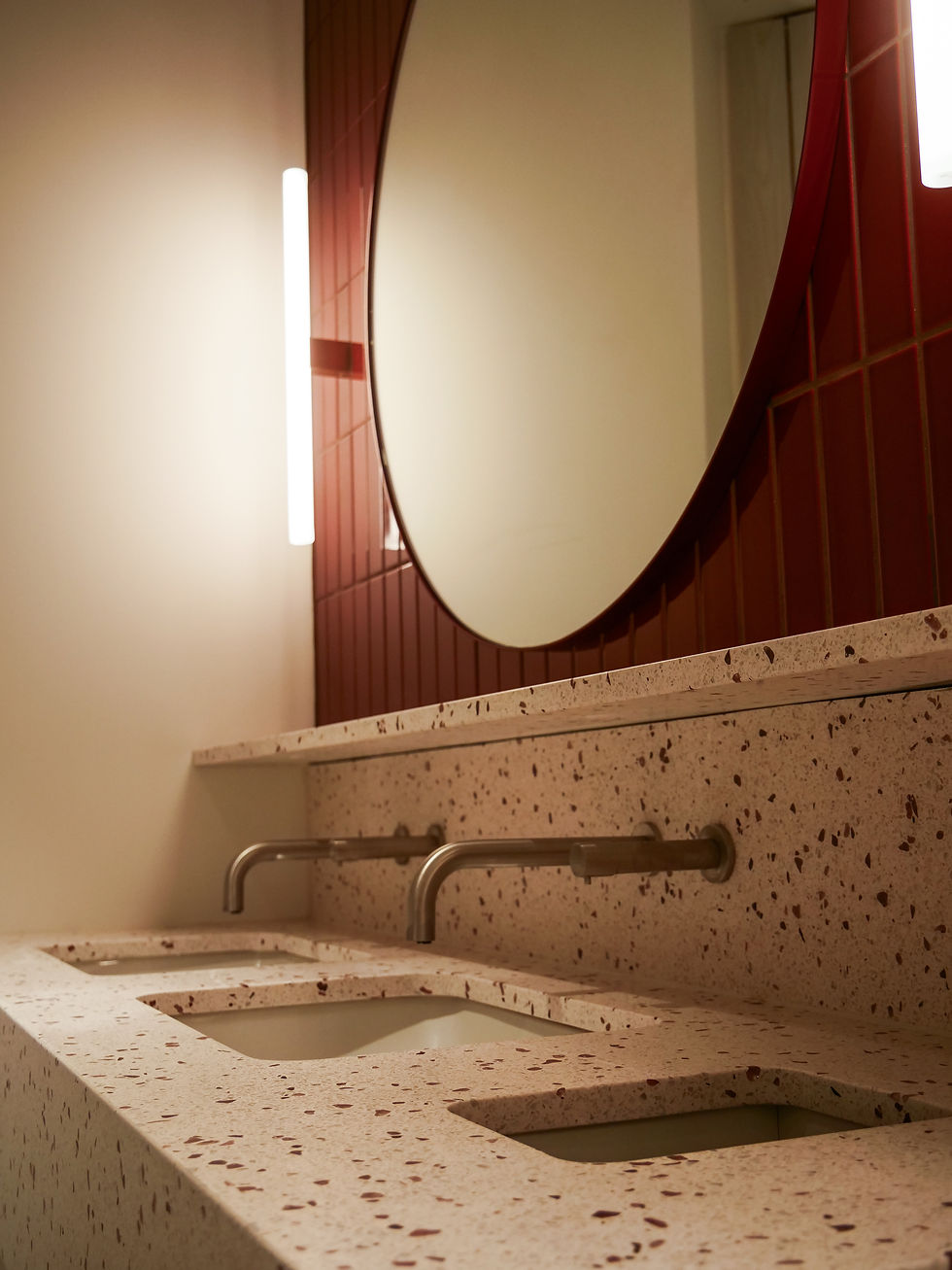#royallondonhospital #covid #therewhenyouneed
- kelseymcmullan
- Apr 1, 2020
- 3 min read
“One Friday night at midnight I received a text from a client I hadn’t spoken to in quite a while. It read: ‘We need you. This is life or death. Give me a call’, says Rolf McMullan, Managing Director of Maxwood Washrooms. “That certainly had my attention! We made contact immediately, spent all day Saturday reviewing the scope of the contract and by Monday all the details had been finalised and we had a confirmed order.”
The Task
Wates Construction’s fitout of two new wards for Covid patients at the Royal London Hospital in Tower Hamlets was a substantial project that would normally have taken 12 months. Amazingly, however, the job was completed in just 5 weeks with no compromise on quality, and the NHS client and local politicians absolutely delighted at the outcome.
Says Wates Project Director, Robert Setchell: “Everyone stood up and pulled out the stops – never ever before has a result like this been achieved in construction – the NHS are absolutely made up” The brief was clear and time was of paramount importance. Maxwood’s role was to supply and fit 120 pre-plumbed handwash units, fittings for the toilet and shower area and 80 linear metres of laminate pipe boxings. Harvey Abernethie, Maxwood’s Contracts Manager puts it in stark terms: “We knew that even if we didn’t finish on time, Covid patients would start arriving anyway.”
Ways of Working
Ways of working on this project were very different at every stage:-
Right from the start there was a shared belief in the importance of achieving the goal. The whole team bought into this from top to bottom. “Wates leadership was outstanding,” says McMullan. They set a tone of unflappable calm and all the sub-contractors responded positively”.
Innovation
Maxwood’s innovation process was exceptionally rapid in response to the crisis. A brand new product, the MediMax handwash station, was developed for a sector in which the company had not operated for several years. The conventional new product development process was condensed to just 4 days from concept to launch!
Supply Chain
This meant re-creating a supply chain to get all the specialist parts. Due to Covid the supply chain had pretty much closed down and needed to be re-opened urgently. It was. Collections of taps were made from a sanitaryware merchant at 6.30am one Saturday morning.
Design
Under the circumstances the design stage had to be both rapid and accurate. Maxwood coordinated this part with the full involvement of the contractor and other trades. The company made full use of Zoom technology to get everyone working together and, despite the speed, there was no compromise on the level of detail, which paid dividend once the project reached the site. Moreover the Maxwood design team worked right through the night to complete the drawings. The approval process was similarly rapid, with decisions made without delay.
Production
An ultra-responsive approach to production in Maxwood’s Coventry manufacturing plant was essential. The operations team were given just 3 days to make the products. On top of that, the prototype was produced early for testing on-site and changes were fed back to factory during production process for incorporation in the final specification. “That broke all of our normal internal constraints!,” laughs Abernethie.
On-Site Operations
Once on-site, Maxwood’s installation team of 7, including the site manager, were on-site permanently for 3 weeks, operating a rotating shift pattern to get the job done. Abernethie explains: “Normally these sorts of jobs involve multiple visits to a site coming and going over a period of months, taking our turn before and after other trades, so this was a very intense way of working!” A challenge for every trade was ensuring works were coordinated to allow jobs to be completed whilst also maintaining the appropriate social distance. However, through effective communication, this was achieved.
In fact, collaboration with other trades was exceptional. “Site issues were resolved quickly in minimal time without argument despite the pressure and speed”, says Abernethie. “Everyone had a can-do attitude to resolving any problems as they arose. We were all just there to get the job done”.
Learnings
While the context for this project was obviously an extreme situation, there are a number of learnings that Maxwood believe will be applicable to future projects.
• clear buy-in to common goal • smarter collaboration between contractors and sub-contractors during design phase, enabled by technology means fewer changes needed later. • rapid decision making with reduced red tape • on-site working in parallel with other trades rather than sequentially, so long as the planning is good
Paul Chandler, Group Managing Director of Waits Construction, sums it up: “I think this demonstrates what can be done if we follow the 3T’s: trust, transparency and teamwork.”





Comments